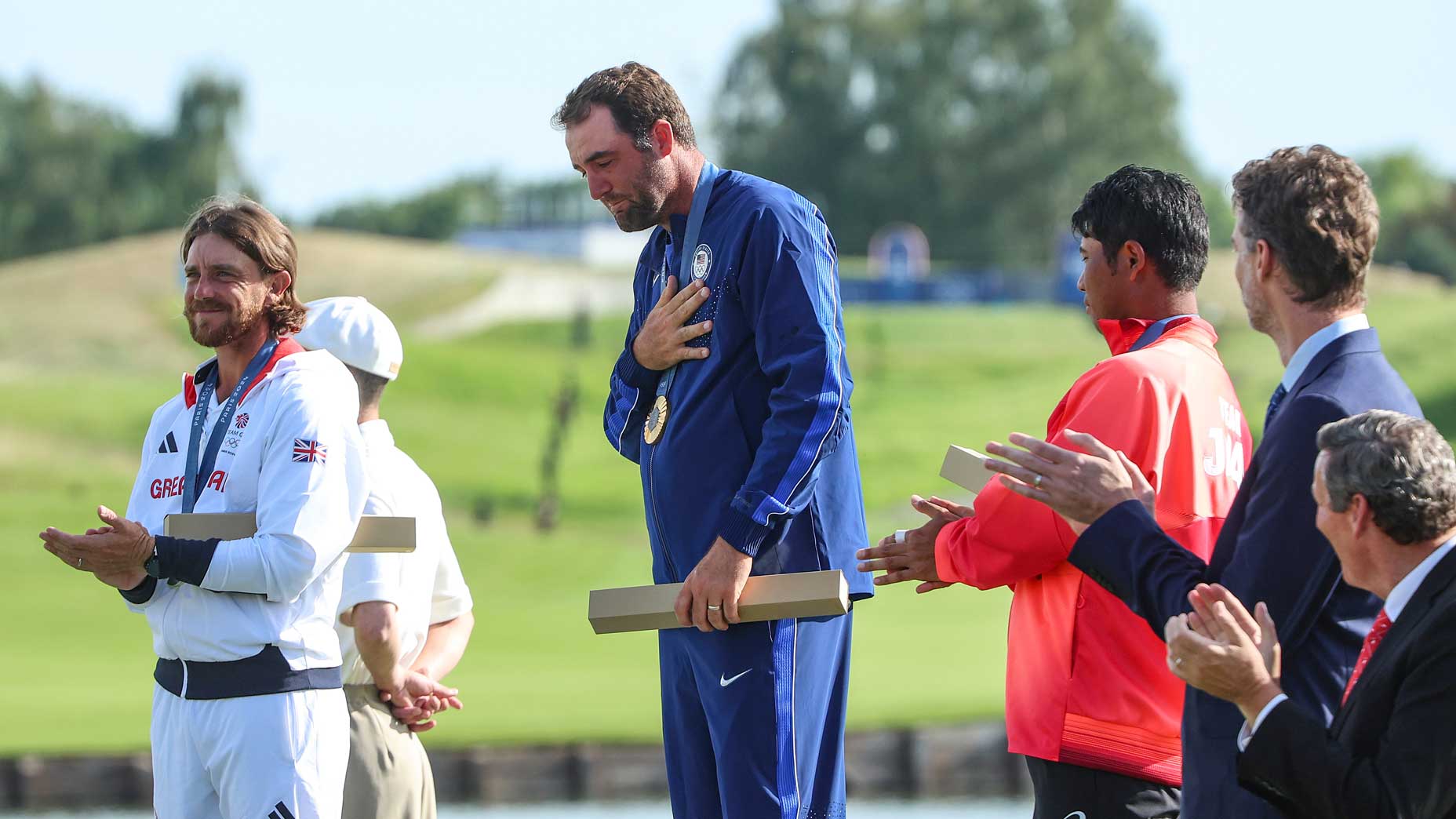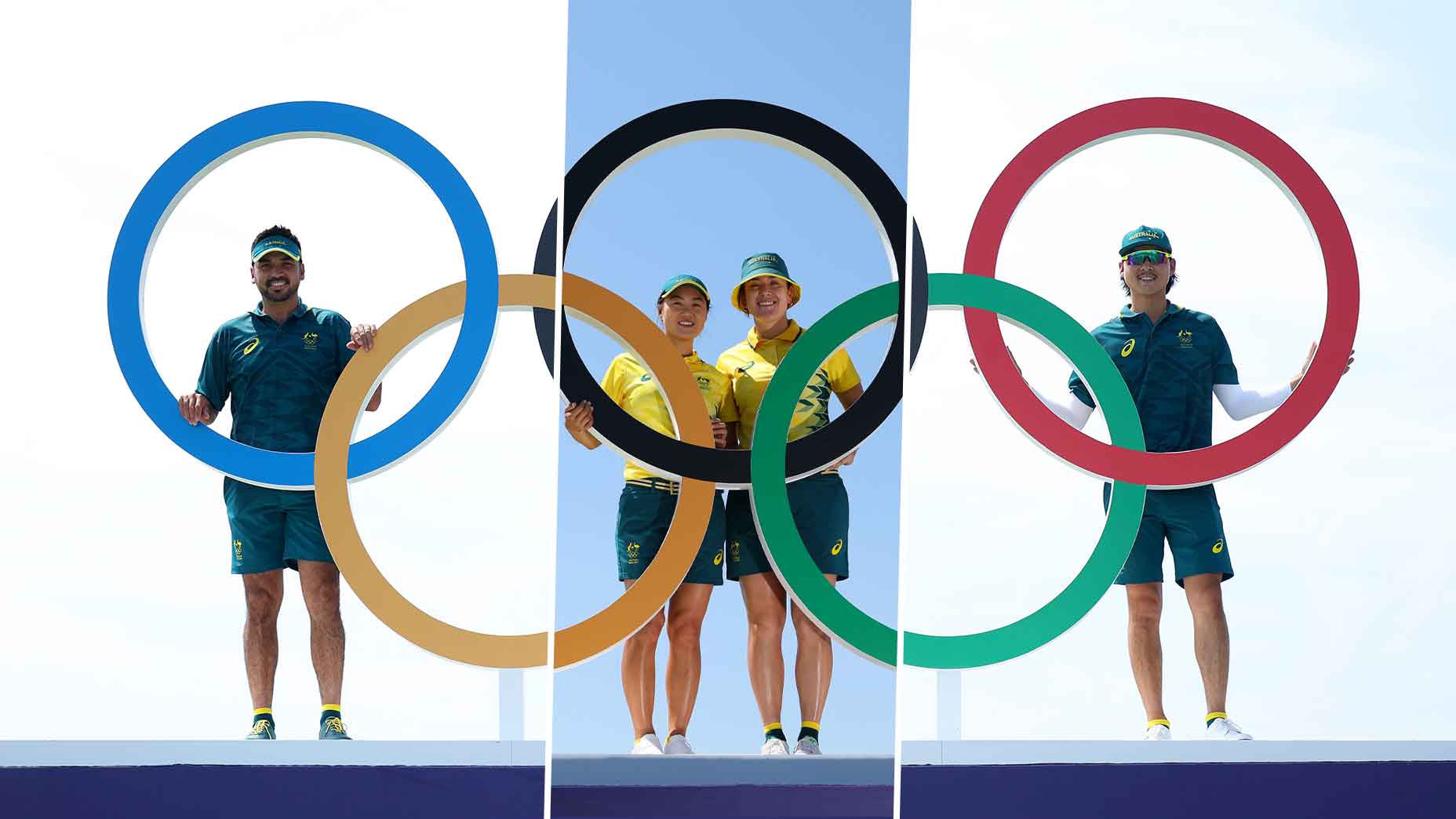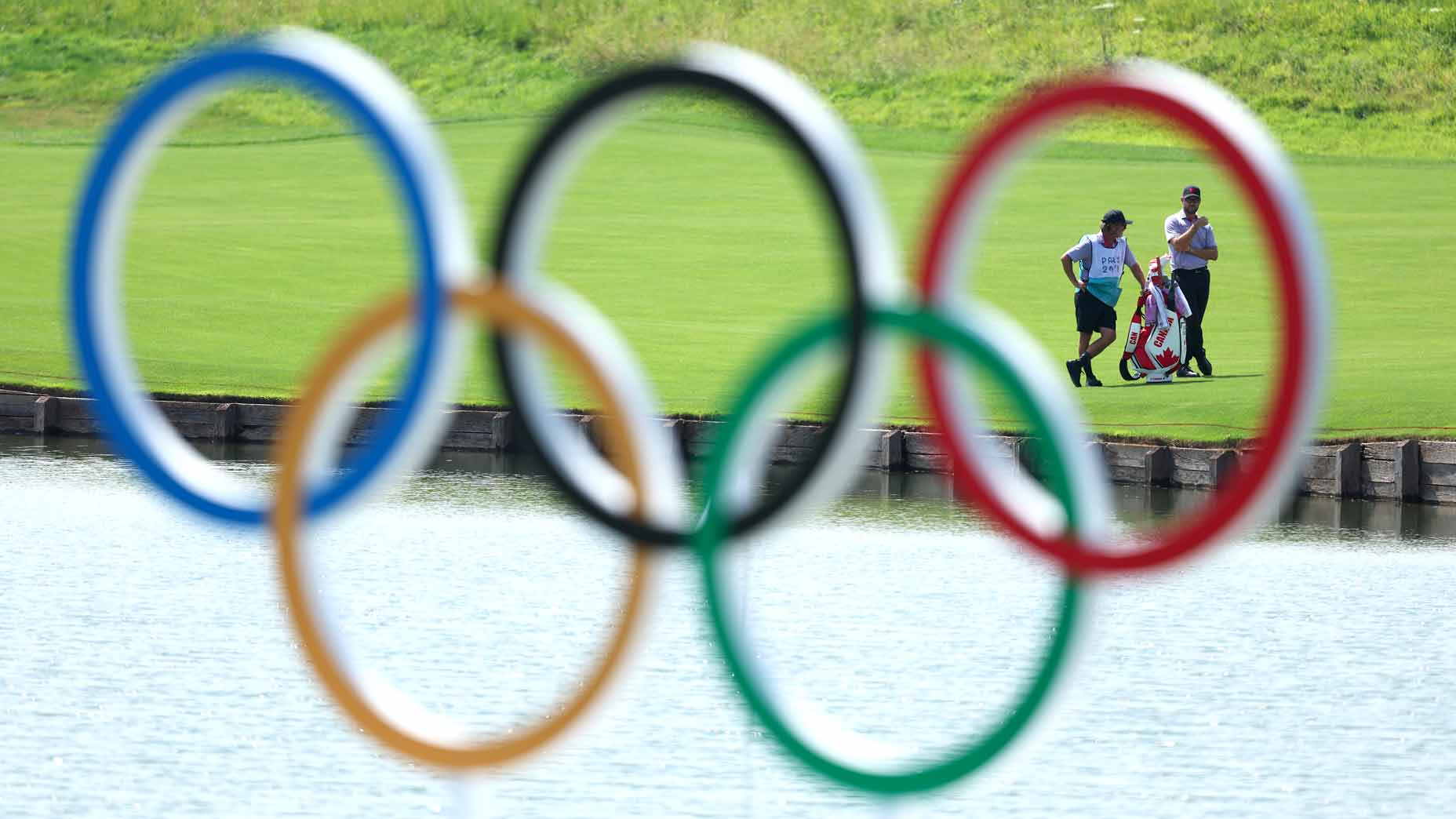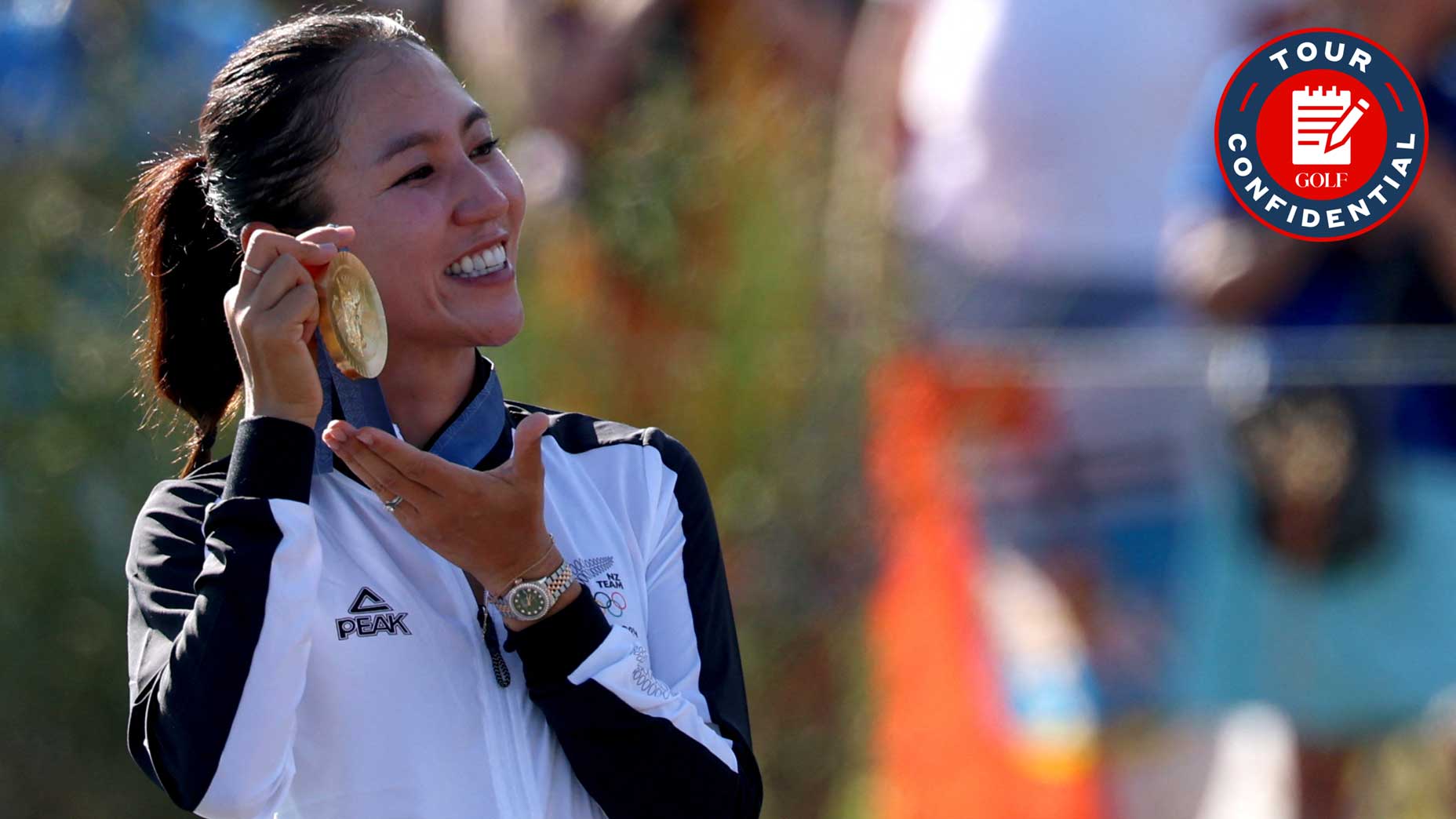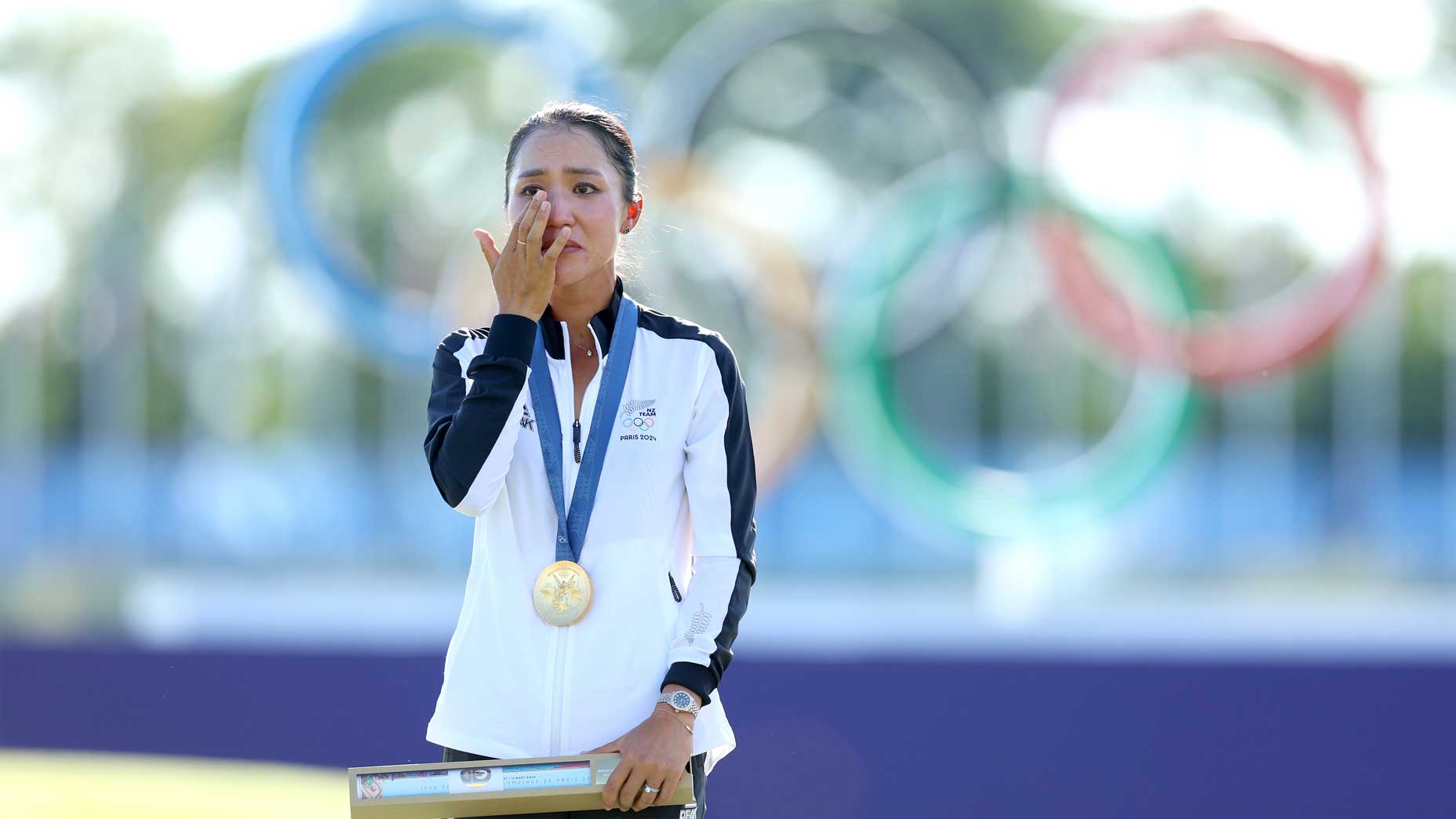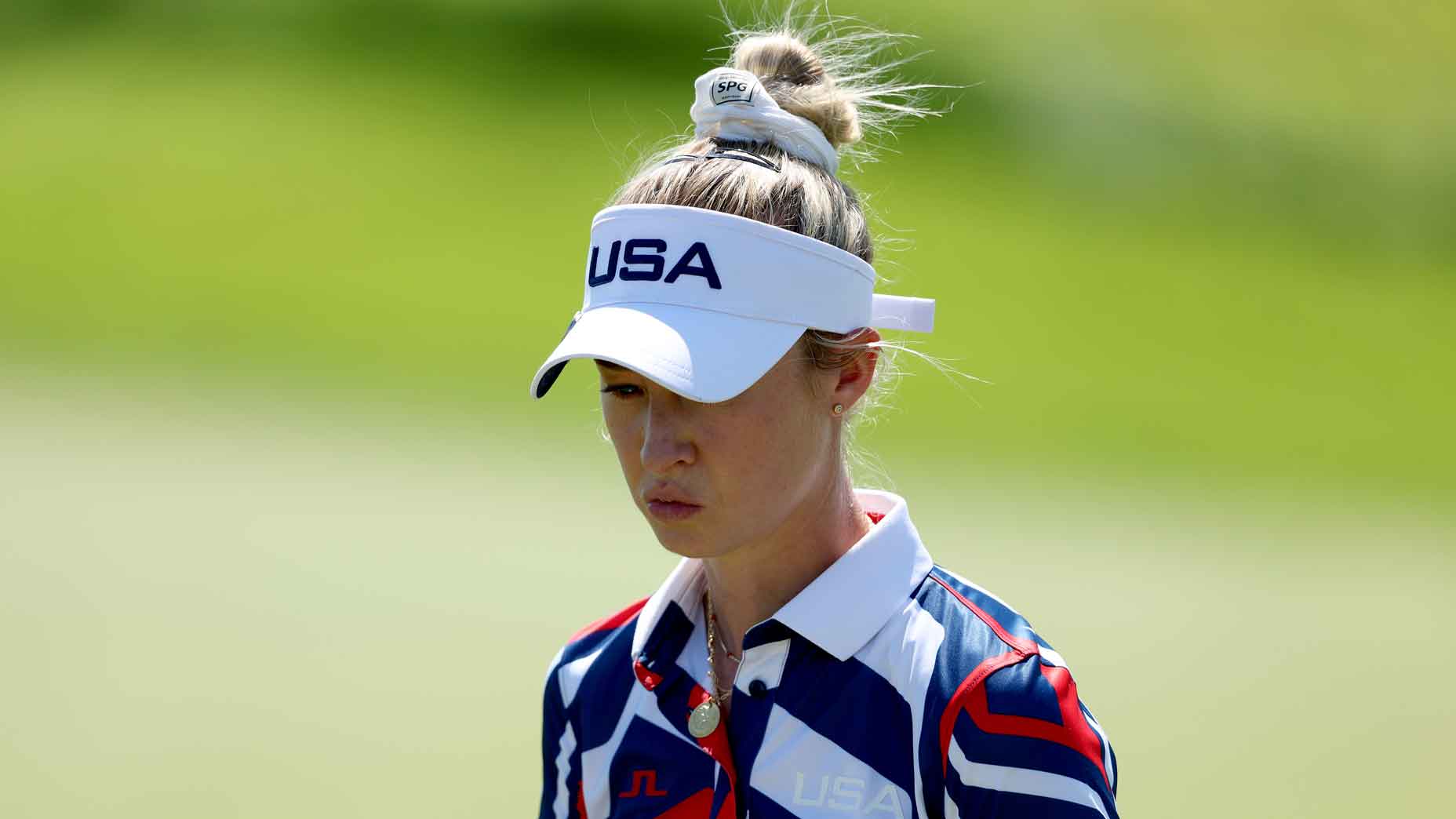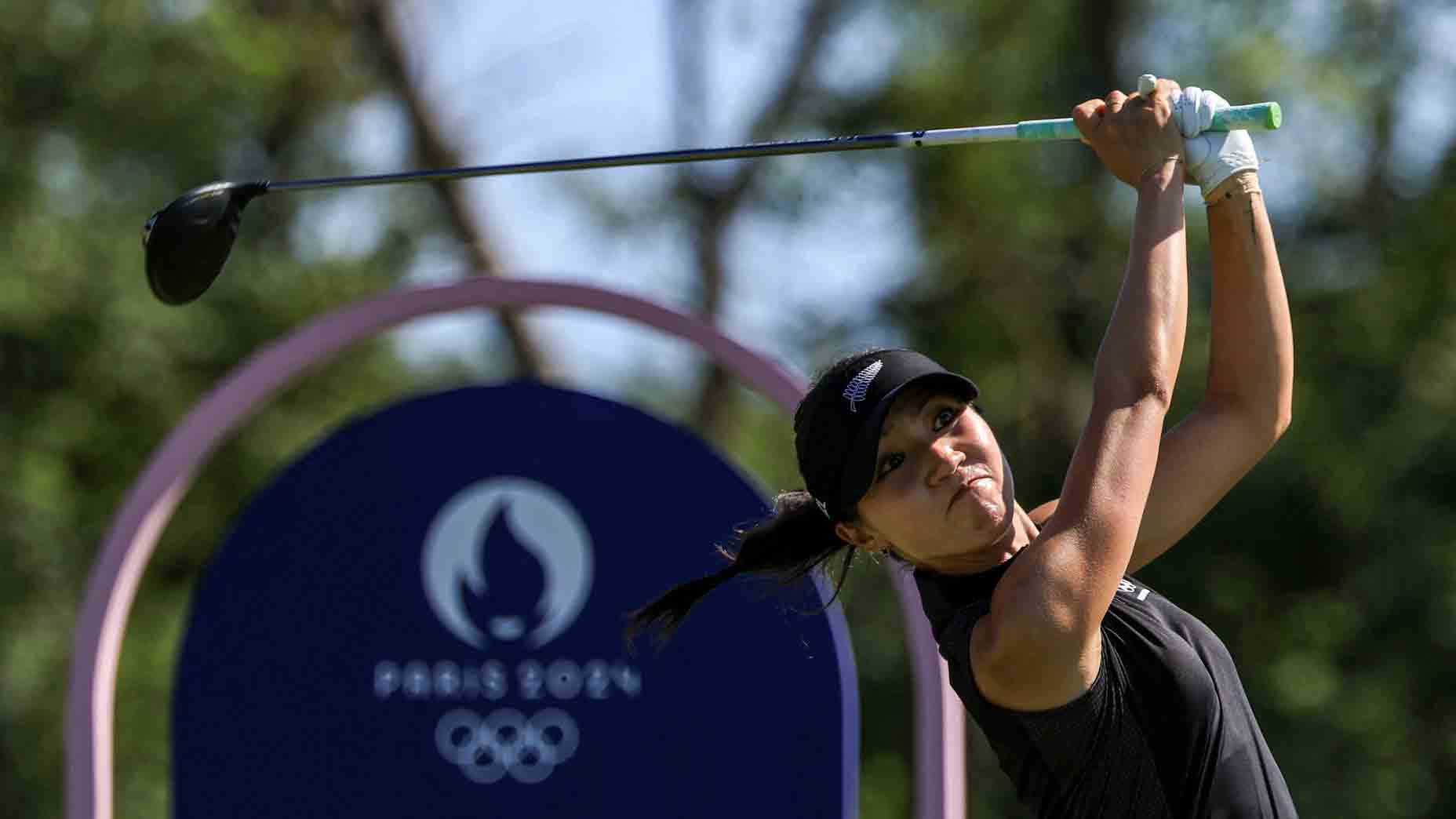SAINT-QUENTIN-EN-YVELINES, France — It felt weird showing up to Le Golf National Monday, about 15 hours after Scottie Scheffler stood atop the medal stand. The property was quiet, nearly empty, and last we had seen it, it was raucous. Truly chaotic.
Chaotic in a good sense, of course. “I’ve never seen anything like it,” Azahara Munoz said Monday. (That’s right, the ladies have the mic now.) Munoz and her Spanish teammate, Carlotta Ciganda, arrived Saturday and walked the course with their fellow Spaniard Jon Rahm, who at the time was in contention. But on Sunday, with even more fans and the medal chase in the balance, sight lines became sparse. The 5-foot-5 Munoz couldn’t see anything.
“I have never been in a men’s event when it’s this big,” she said. “So I ended up actually going inside and watching it on TV because I couldn’t get close and I couldn’t see anything.
“But at least it was great to be outside and seeing the atmosphere, and, yeah, it definitely give me chills. I’ve literally never experienced anything like it. It was amazing.”
Most of the women’s field was kicking around on-site Sunday, either at the practice facility or playing the front nine as the men finished on the back. We’ve got just two days of practice rounds (and one is already done), so good news: Golf at the Olympics will return shortly.
In the meantime, here are 6 thoughts on what we’ve seen, and what is left to come.
1. Scottie’s definition of relaxing
Perhaps what amazes me most about Scottie Scheffler is not how skilled he is, but how calm he seems under pressure. It feels like every pro battles nerves to some extent, but Scheffler seems to evade them. Maybe that’s because while he’s on the course, he still holds some control over the outcome.
On Sunday night, with the Gold Medal hanging from his neck, Scheffler said it’s the moments down on the range, when a round is complete and a potential playoff is in the balance, that he can feel the most nervous. Because he can’t affect the result at that point. He needs to stay warm and relax.
Inside Scottie Scheffler’s Olympic charge and the most electric finish of the yearBy: Sean Zak
My only question is about his music choice. When Scheffler hit wedge after wedge Sunday evening, hoping to waste away the time, he decided to play U2’s “Beautiful Day” on his phone. He said he was trying to relax, but doing so with that upbeat, inspiring pop-rock music doesn’t quite equate for me. Would love to know what else is on the Potential Playoff Playlist.
2. Same course, different approach
Many phrases can be used to describe the differences between the men’s and women’s game — be prepared to hear some of them this week. The height of the ball flight, the spin, the trajectory, club choices, etc. But France’s Celine Boutier wrapped it up neatly in two words: stopping power.
For some reason, those words struck me. Maybe because pros don’t really use them, instead getting tied up in the esoteric language that defines the game. Launch angles, spin rates, ball speeds, etc. It’s just stopping power. That’s all it is. Simple idea.
“You can’t really expect us, me personally, to play the same way [as the men],” she said Monday.
Still, that the same course is hosting a women’s event a week after a men’s — we can’t help but wonder how differently (or similarly) things will go. And early signs are that Le Golf National will play quite a bit tougher for the ladies. The course is lush, the greens firmed up through the men’s comp, the rough thick — you won’t see women hitting 8-irons from the long stuff onto the green and getting it to stop like Scheffler did Sunday.
One former men’s pro, who has caddied a bunch on the LPGA, told me that something in the eight-under range will be a fantastic week for the women.
3. Podium tears are nothing new, but they are telling!
Scottie Scheffler couldn’t prepare for the emotions he felt as the American flag was being raised and national anthem was played during his medal ceremony. But as the anthem reached “O’er the land of the free…”, Scheffler began to cry. You’ve probably seen the images by now.
Something similar happened in 2021 to Nelly Korda, who took her first 18-hole loop around Le Golf National Monday and then popped in for a press conference.
“As a kid, I watched so many athletes and all their raw emotions on that podium when their flag goes up and the National Anthem,” Korda said. “And when I finally got to do it myself, there was a massive rush of emotions that go through me. I had a couple tears roll down my face. It said on my WHOOP that was the highest my heart [rate] was all day was actually on the podium.”
So playing in contention, squeaking by Mone Inami and Lydia Ko, grinding to hold on to the top spot, that wasn’t the most nerve-wracking part of her day. It was was when all eyes were on her on the podium. That’s interesting!
4. LGN’s brutal 18th gets … more exciting?
Much was made of the finishing hole at Le Golf National and how difficult it played for the men. No other hole on the property was even close in relation to stroke average over par. Medals were won and lost there, just as we predicted. But now, that brute turns from a tricky par-4 to a risk-reward par-5.
Does that automatically make it … more exciting? Perhaps. Even though the idea of par is simply a construct that makes viewing golf on TV easier, it does change how players approach the finish. The women will mostly all be playing driver off the tee and then likely a long iron into the green, whereas on Saturday Rory McIlroy hit 5-wood, 9-iron.
‘Toughest hole I have ever played’: Olympic medals will be won (and lost) on a bruteBy: Sean Zak
On Monday, plenty of women were dropping a ball in (or hitting to) a flat spot in the corner of the fairway to practice that 60-yard, over-water wedge shot they may need for an up-and-down birdie (and a medal). It’ll be fascinating to how different the tallied scores will be. My guess: fewer 3s, fewer 4s, much fewer 6s.
5. Lydia’s missing medals
With Xander Schauffele imploding on Sunday, only one golfer in the world can claim multiple medals. That’s Lydia Ko. The only oddity is that she’s a lot like Schauffele. She doesn’t really know where hers are.
Schauffele says he believes his Gold from the Tokyo Games is at his parents house, and Ko believes the Silver from the Rio Games is in her father’s closet, with the Bronze from Tokyo somewhere in her sister’s apartment. I asked her why she feels so comfortable with other people holding onto her prized possessions. The reason is touching.
“I’m not very careful to start off with, anyway, so I trust them more than my memory,” Ko said, before offering a wholesome tale about her family.
“Tokyo, because of circumstances, I was only there with my sister and my performance manager, and my grandmother had unfortunately passed the day I was leaving for Tokyo. I asked my sister who was going to Korea from Japan to take it back and show it to my parents and also hopefully take it to grandma’s grave. That was kind of the meaning on why it went to her place.”
One thing Ko did clarify, though, was that if she wins Gold this week to create the Medal Slam, she will be storing all of her treasures in one place.
6. Reverse commuting
Eighteen male golfers are headed straight from Paris to Greensboro, N.C., for this week’s Wyndham Championship, a reminder that the beat goes on in pro golf. There’s always another tournament to get to. But the reverse of that feels particularly taxing.
India’s Aditi Ashok is on her way to Paris, probably arriving Monday night, but won’t get a look at the property until Tuesday morning at the earliest. Why? She made the cut in last week’s LPGA event in Portland, which delayed her arrival to France longer than anyone else in the Olympics field. She finished T22 and, presumably, jumped on a string of flights to get to the Games, spanning nine time zones in the process.
Pro golfers are hardened travelers — we know this. But it becomes particularly tricky when you consider the women’s comp kicks off a day earlier than most weeks, on Wednesday. All of which means, Ashok will be playing a full 18-hole practice round Tuesday if she wants to see every hole on the property. Check back Tuesday, and we’ll let you know how she’s feeling.
